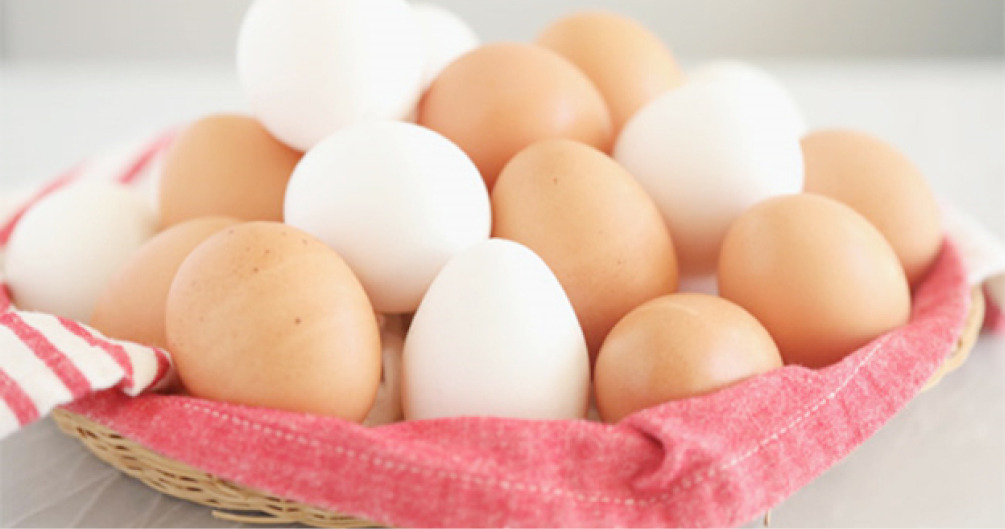Issues as farmers celebrate World Egg Day tomorrow
Tomorrow, Friday, October 14, poultry farmers in Nigeria will, along with their counterparts worldwide, celebrate World Egg Day with a reflection on the many issues that currently characterise the industry. Every year, on the second Friday of October, World Egg Day is observed, and activities have grown and developed since it was first marked in […]

Poultry eggs
Tomorrow, Friday, October 14, poultry farmers in Nigeria will, along with their counterparts worldwide, celebrate World Egg Day with a reflection on the many issues that currently characterise the industry.
Every year, on the second Friday of October, World Egg Day is observed, and activities have grown and developed since it was first marked in 1996.
World Egg Day 2022 will be celebrated with the theme, ‘Eggs for a Better Life’ to highlight the many benefits eggs bring to human health and livelihood.
Here in Nigeria, the cost of producing eggs has forced many farmers out of production and those still producing are struggling to stay afloat.
The cost of egg rose from N30 in 2016 to N80 per egg this year and a crate from N650 to N1, 950 across the country within the same period but poultry farmers say the product could be sold as high as between N1,950 and N2,100 at retail price in some locations.
Speaking with Daily Trust on Wednesday in Abuja, the Director General, Poultry Association of Nigeria (PAN), Dr Anallo Akpa, said although the purchasing power of the people is down and the industry is faced with a lot of economic challenges in terms of production activities, there is hope for the sector in the country.
“With the rising cost of maize and soya, the cost of production has gone up, especially in the last 24 months and that has made it impossible for the price of eggs to be so comfortably affordable by the people at the bottom of the pyramid.
“Despite the high cost of production, patronage of eggs is also on the decrease – not because people don’t want to eat eggs but because the cost is unaffordable by people whose disposable income is not sufficient to look for garri and other things to fill up their stomachs.
“But notwithstanding, the poultry industry continues to grow despite other challenges of disease, among others.
“We are still the biggest egg-producing nation in Africa and we are still trying to maintain the first position in terms of broiler meat production,” he said.
Dr Akpa said effort is being made to increase egg consumption “through institutional collaboration with the school feeding programme where it has been approved that one egg should be given to a pupil per week in the junior primary 1-3.
“I hope in this last quarter, implementation will start whereby every Wednesday, about 12 million enrolled at the junior primary school level will be given one egg per child per week.
“When you translate that into the number of eggs per week that would be provided by the poultry industry per month, it would be 48 million pieces of eggs, and when you divide 48 million by 30, you will have around 1.6 million crates of eggs in a month.
“We hope that the government does not play politics with the policy, as if this becomes effective, you will discover that the entire value chain will increase because a lot of farmers will increase the capacity of their farms.
“And those who are in the other value chain of feed and crop production will also increase their production activities in maize and soybeans because the demand for these raw materials will still be on the increase,” he said.
The poultry farmer hopes that when the purchasing power of the people improves, the demand for eggs will also improve.
All over the country, poultry farmers are in pain. While some manage to make little gains depending on the scale of production, many went down in losses due to their inability to feed their birds.
The Secretary, Poultry Farmers Association of Niger State, Mohammad Audi Adamu, said when the price of 25kg of feed moved from N6,000 to N9,000 farmers in the state resorted to selling their layers because they could no longer continue with the production.
“They sold their layers so that they don’t lose completely. The buyers of layers come from Kaduna, Kano and Abuja. We also learnt that they take them as far as Niger Republic to sell.
“Those who have shut down their farms are engaged in broiler production on a small scale since broilers are due for sale between six and seven weeks,” he said.
